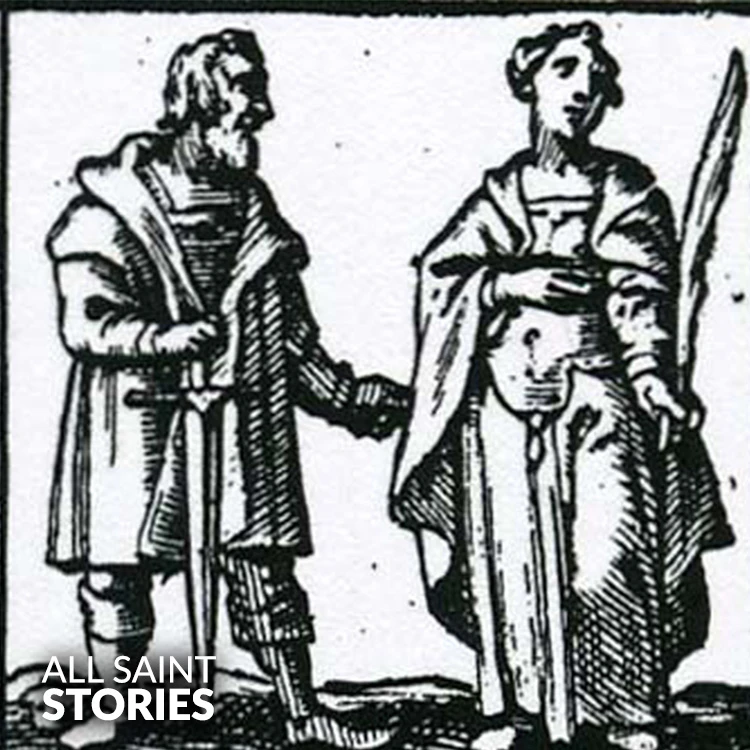St. Julian and St. Basilissa, you are an example of love and steadfastness in faith. Intercede for us, that we may follow your example of dedication to Christ, even amidst trials. Help us to live lives full of charity, compassion, and fidelity to God's call. Amen.
ST. JULIAN AND BASILISSA
ST. JULIAN AND BASILISSA

St. Julian and St. Basilissa were a married Christian couple who are venerated for their martyrdom. They are remembered for their steadfast faith, charity, and commitment to helping those in need, dying for their beliefs during the early Christian persecutions in Rome.
St. Julian and St. Basilissa were a married couple who lived in Rome during the early centuries of Christianity, a time when the Roman Empire was severely persecuting Christians. They were both devout in their faith, and their lives were marked by generosity and charity toward the poor and the needy.
St. Julian was a wealthy man by birth, but he and his wife, St. Basilissa, chose to live modestly, dedicating their wealth and resources to charitable acts and supporting the early Christian community. Their faith was not just a private matter, but a public declaration of love for God and for the most vulnerable in society. They opened their home to Christians in need, providing shelter and sustenance during times of persecution.
Both Julian and Basilissa became known for their acts of kindness and for their unshakeable devotion to Christ. However, their charitable works and open proclamation of Christianity eventually attracted the attention of Roman authorities, who were cracking down on Christians. They were arrested and brought before the Roman magistrates for their refusal to renounce their faith.
According to tradition, Julian and Basilissa were condemned to death for their steadfast refusal to offer sacrifices to the Roman gods and for their active proselytism. They were martyred for their faith on January 9, though the details of their martyrdom remain unclear. Some sources suggest that they were executed together, while others claim they were subjected to torture before their deaths.
The church in Rome holds them in high regard, and they are often remembered for their deep Christian love, courage, and commitment to the poor. St. Julian and St. Basilissa are honored as patrons of married couples and those in service to others. Their feast day is celebrated on January 9.
Video Not Found
The information you see here may be either accurate or might contain some discrepancies, as it is gathered from various sources. If you believe that any part of the details about this saint is incorrect or incomplete, we kindly invite you to share your suggestions or corrections with us. Your insights are invaluable in helping us ensure that we provide the most accurate and reliable information.
We encourage you to use the form on the left to submit any corrections or additional information you may have. Whether it's a small detail or a larger correction, we will carefully review your submission and update the information accordingly. Your contributions will not only help us maintain the integrity of the content but also benefit others who seek to learn more about this saint. We greatly appreciate your assistance in making our information more accurate and complete.
Please rest assured that your personal details will remain confidential, and your suggestions will be handled with the utmost care. Together, we can ensure that the information about this saint is as accurate and informative as possible. Thank you for your time and contribution!
If you have any suggestion about ST. JULIAN AND BASILISSA
Your suggestion will help improve the information about this saint. Your details will not be disclosed anywhere.
© 2025 Copyright @ www.allsaintstories.com


 English
English
 Italian
Italian
 French
French
 Spanish
Spanish
 Malayalam
Malayalam
 Russian
Russian
 Korean
Korean
 Sinhala
Sinhala
 Japanese
Japanese
 Arabic
Arabic
 Portuguese
Portuguese
 Bantu
Bantu
 Greek
Greek
 German
German
 Dutch
Dutch